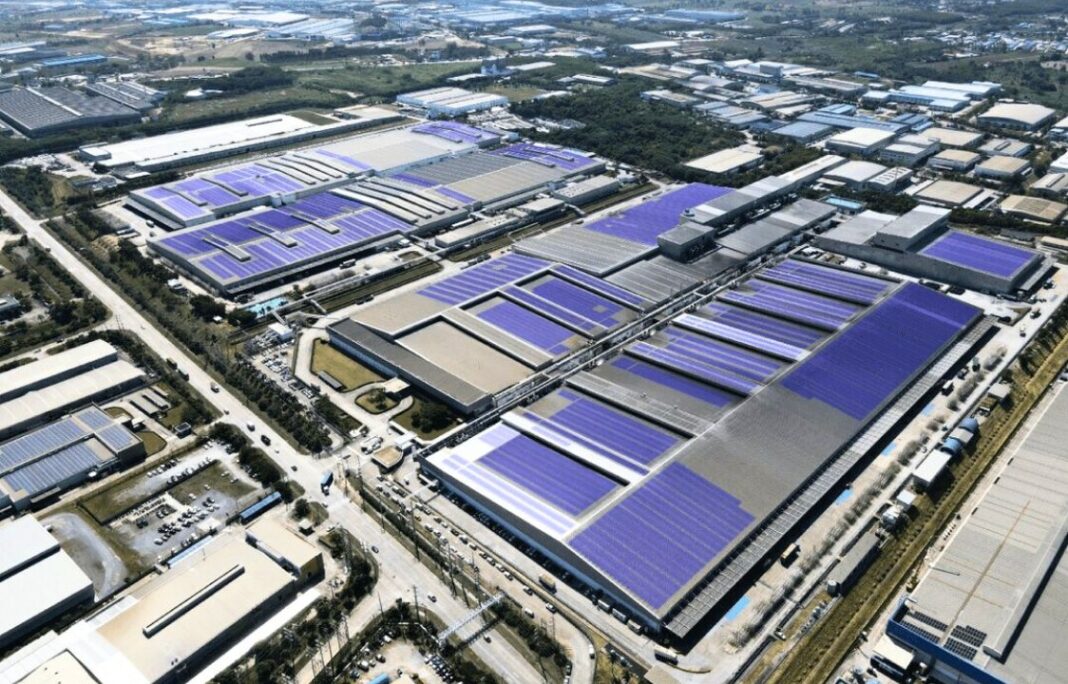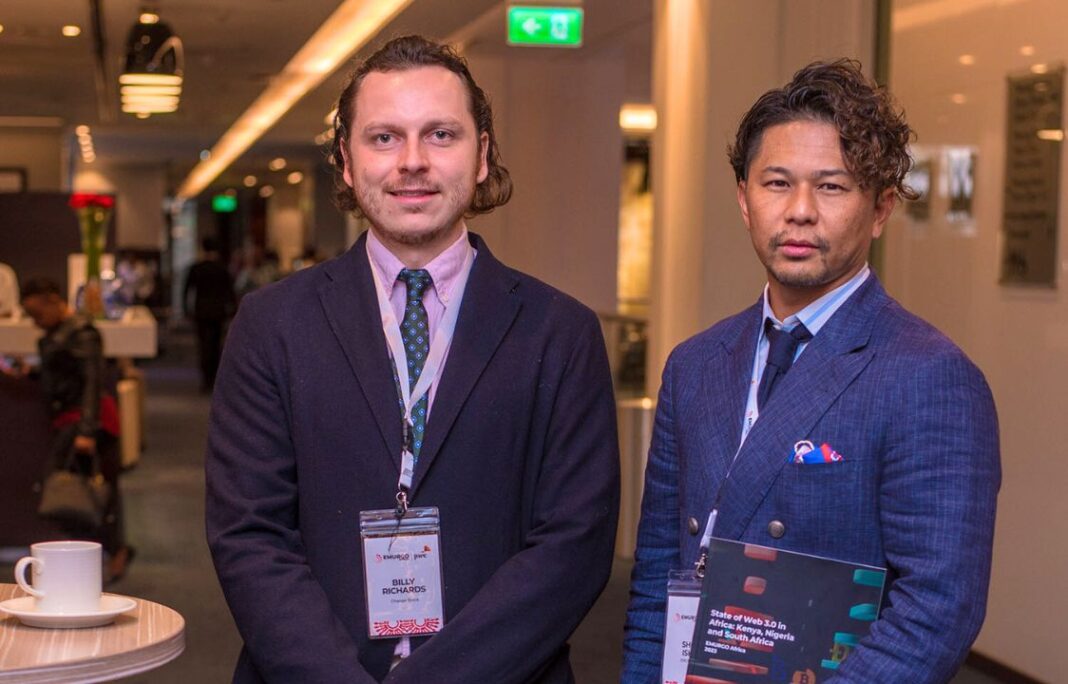Kansai Electric Power Co., Japan’s second-largest electricity supplier, has announced the construction of the world’s largest standalone rooftop solar panel installation on a factory’s roof that manufactures Falken tires for the European market.
The project showcases the feasibility of large-scale solar installations in commercial settings and promotes sustainability while contributing to economic growth.
The world’s biggest solar rooftop
The rooftop solar panel project in Thailand’s Eastern Economic Corridor involves a gas co-generation system and electric power from biomass sourced from surplus rubber trees. The project, spanning 100,000 square meters and featuring 40,000 panels, is set to achieve a total output of 22MW by 2025.
This effort will lead to a reduction of 38,000 tonnes of CO2 emissions. Sumitomo Rubber Industries Ltd, the factory’s owner, aims to achieve complete reliance on renewable energy through this initiative.
Situated within the Amata City Rayong industrial park, nearly 135 kilometres southwest of Bangkok, this project demonstrates Thailand’s leadership in clean energy within the Association of Southeast Asian Nations (ASEAN), a region with an economy of $3.2T and a consumer base of 660 million individuals.
The collaboration between various companies and the incorporation of multiple renewable energy sources showcase Thailand’s commitment to sustainable practices and technological advancements.
“In terms of the promotional force of the country, we think Thailand is the most advanced in the ASEAN region,” says, Katsuhisa Yamamoto, MD of Kansai’s Thai unit.
Thailand is making significant strides in advancing its sustainability goals through the Bio-Circular Green economy strategy. This approach involves offering subsidies, tax breaks, and incentives to attract investors for renewable energy projects.
The government’s commitment to these initiatives underscores Thailand’s leadership in promoting sustainable practices and transitioning towards a greener economy. “It’s very important for our business, especially in tax benefit,” says Yamamoto, on the government’s support.
Investors in this project
Thailand’s renewable energy sector has seen a surge in investor interest, with 186 out of 195 applications to the Thailand Board of Investment for power generation projects in the first half of 2023 being focused on renewable energy.
A wide range of investors, including Japanese, Korean, Chinese, European, and American companies like Amazon Web Services and Western Digital Corp, are enthusiastic about exploring clean energy opportunities in the country.
Shuji Hashizume, a Bangkok-based Principal Investment Specialist at Asian Development Bank, says “Thailand is the frontrunner in Southeast Asia. Climate change is the biggest agenda globally now and Asia is the epicenter of carbon emissions. Thailand will likely be leading the initiative in ASEAN and its importance cannot be over-emphasised.”
Thailand’s commitment to sustainable energy and innovation
Thailand has undergone a “noticeable” transition, evolving from a major internal combustion electric vehicle (EV) producer to a regional hub for EV manufacturing and a thriving EV market.
Notable investments by companies like BYD, Great Wall Motor, SAIC, Mercedes Benz, and Foxconn have driven this change. Even Foxconn, a major electronics manufacturer, has entered the EV industry.
Additionally, Thailand’s state-owned enterprise PTT PCL is making substantial investments in clean energy, including a significant EV partnership with Foxconn and collaboration with CATL, the world’s largest car battery maker.
This comprehensive shift underscores Thailand’s commitment to clean energy and its ability to attract diverse industries to foster this transformation.
Meanwhile, another state-owned company Energy Generating Authority (EGAT) is pioneering the use of floating solar farms on major reservoirs, creating some of the world’s largest dual-power sources that combine solar and hydro-electric energy.
The country’s private sector, represented by companies like Energy Absolute PCL and B.Grimm Power PCL, is also contributing significantly to the clean energy transition.






